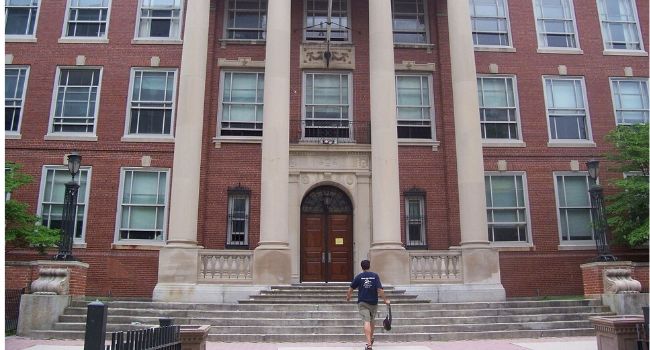
Boston City Council to Consider Rules for School Data Sharing with Law Enforcement
A measure was introduced after it was revealed that Boston schools had disclosed immigration status data, among other information, with law enforcement.
- By Haley Samsel
- May 11, 2020
Boston city council members are set to consider a measure this week that defines how schools can share student data regarding crimes or safety threats.
Among the policies up for debate during Wednesday’s city council meeting are measures on government use of facial recognition technology and how each city department uses surveillance technology. One measure, brought to the council by members Michelle Wu and Ricardo Arroyo, details the types of information that school district officials are able to share with law enforcement, The Boston Globe reported.
Under the measure, schools could share data with police if a student committed serious violence or caused a “credible” safety threat, according to The Globe. In addition, officials are cleared to share if a student was caught in possession of guns or drugs, with the exception of marijuana, nicotine and alcohol.
The main information that officials would be barred from sharing includes ethnicity, immigration status, home neighborhood, languages spoken or gang affiliation. A community board would also be established to conduct oversight on how Boston schools implemented and changed their data sharing policies.
Wu and Arroyo’s proposal comes in response to public records released in January that showed how Boston Public Schools shared their data with an intelligence sharing network center that included a Department of Homeland Security agent.
A lawsuit filed by the Lawyers for Civil Rights led to the disclosure that the district shared student information with the Boston Regional Intelligence Center more than 100 times between 2014 and 2018, The Boston Globe reported at the time. Civil rights lawyers claimed that this information was used by U.S. immigration authorities to deport at least two students.
While the school district changed its policy on sharing student incident reports in March 2018 following public criticism for the practice, the city council measure would spell out what information could be shared with federal or local law enforcement in the long term.
A proposal introduced by the school district earlier this year also aimed to help BPS staff know how to respond to requests from law enforcement for student information BPS Superintendent Brenda Cassellius told the Globe in March that there’s “going to be a bright line between what is and what is not shared.”
School district officials are also determining policies on law enforcement access to children on school premises. Arroyo told the Globe that there are still open questions about what the criteria should be for sharing that data with law enforcement. Wu emphasized the need to build trust with the community about what incident report data will be shared with police and what families can expect.
“We need transparency and accountability when it comes to that,” Wu said.
About the Author
Haley Samsel is an Associate Content Editor for the Infrastructure Solutions Group at 1105 Media.